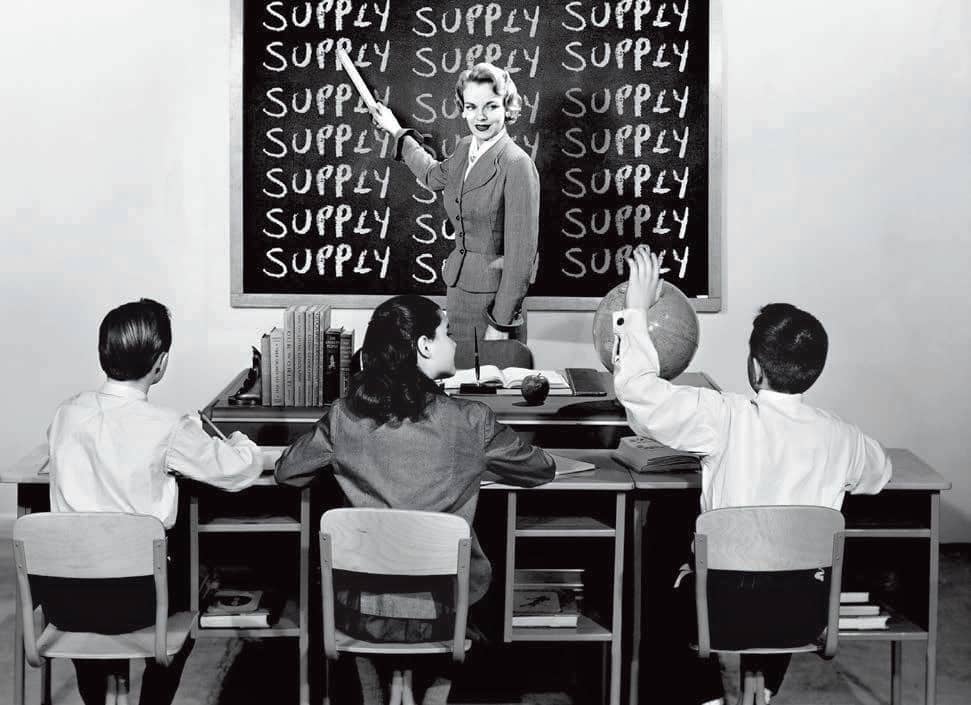
The 2008 financial crash ripped a giant hole in the incomes and wealth of Americans, limiting their ability to afford everything from big-ticket purchases like cars to their rent. The government declined to fill that hole in deference to a superstitious fear of deficits. This kept many millions of U.S. workers on the economy’s sidelines and myriad industrial facilities underutilized. For years, America’s capacity to produce goods and services exceeded consumers’ ability to pay for them.
This was a tragic state of affairs for the U.S. economy but, in some respects, a convenient one for American liberalism. Since the days of LBJ’s Great Society, liberals’ reform ambitions have largely focused on demand-side policy. The Affordable Care Act effectively gives Americans more money to spend on medical services through insurance subsidies. Food stamps give low-income households more money to spend on groceries. Social Security increases seniors’ disposable income.
In a demand-constrained economy, these kinds of policies are free lunches: Since there is spare productive potential, putting cash in people’s pockets not only benefits them directly but also aids the broader economy, as higher consumer spending encourages growth.
Relatedly, in an economy with relatively low inflation—like America’s from 2009 through 2020—the government need not offset new spending with taxes in order to keep prices from shooting through the roof. And that too was very convenient for liberals, who are perennially tasked with reconciling their movement’s expansive vision for the welfare state with Americans’ aversion to higher tax rates.
This story is from the January 02, 2023 edition of New York magazine.
Start your 7-day Magzter GOLD free trial to access thousands of curated premium stories, and 8,500+ magazines and newspapers.
Already a subscriber ? Sign In
This story is from the January 02, 2023 edition of New York magazine.
Start your 7-day Magzter GOLD free trial to access thousands of curated premium stories, and 8,500+ magazines and newspapers.
Already a subscriber? Sign In

Unmasking Diddy
The rap mogul shook off decades of rumored bad behavior with wholesome PR revamps. Now the allegations against him are his legacy.

Staging Sufjan
How playwright Jackie Sibblies Drury turned a classic indie-rock album into a Justin Peck-choreographed dance piece that's now Broadway bound.

Justin Kuritzkes Serves an Ace
With his first movie script for the erotic tennis drama Challengers, he has gone from struggling playwright to in-demand screenwriter.

To Brooklyn, by Way of Paris and Rome
A whirlwind week with Dior creative director Maria Grazia Chiuri as she stages the brand's first New York runway show in a decade.

A Burlesque Family at Home
Showbiz couple Angie Pontani and Brian Newman’s high-spirited Marine Park house.

A Bistro With Shish Barak
Huda impressively balances its many influences.

THE 'DEBATE ME BRO
Mehdi Hasan's aggressive interviewing style landed him a Sunday show on MSNBC. Until he started talking about Palestine.

THE MAN WHO GOSSIPED TOO MUCH
For almost two decades, JOHN NELSON anonymously published blind items skewering the Hollywood elite on the blog CRAZY DAYS AND NIGHTS. Then his identity was revealed in the midst of a messy affair.

TODD BLANCHE IS A SURPRISINGLY COMPETENT LAWYER. AND HE'S ON TRACK TO KEEP HIS CLIENT OUT OF JAIL UNTIL THE ELECTION. IN DEFENSE OF TRUMP
TODD BLANCHE WAS looking for his man. Or it could be a woman, but probably not.

Self: Emma Alpern
In Outer Space Why do so many women believe their bodies are controlled by the moon?